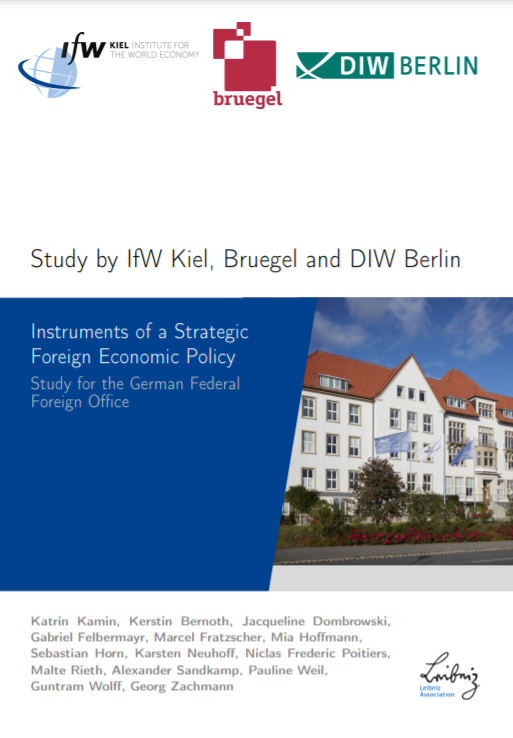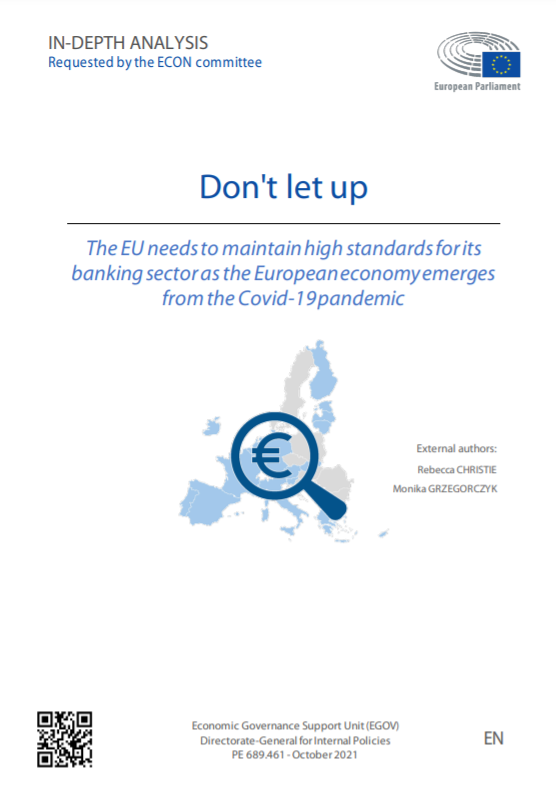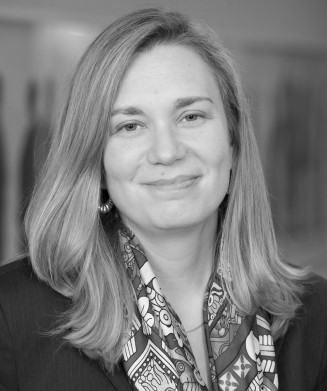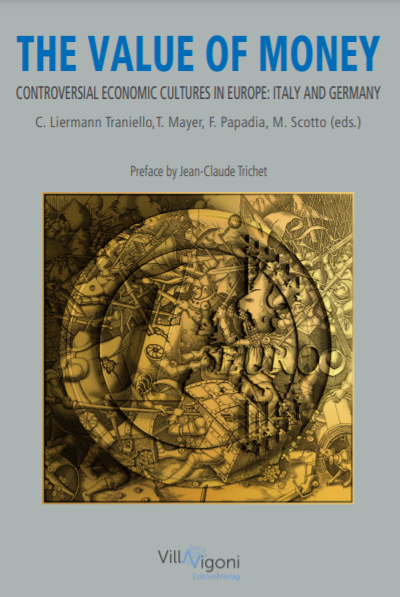Blog Post
Germany’s savings banks: uniquely intertwined with local politics
German savings banks, known as Sparkassen, form an important feature of the country's banking assets. Unlike in other European countries, German Sparkassen also hold direct links with local political communities. This post focuses on the Sparkassen's structural links and relationships with elected politicians. Three findings which do not appear to have been specifically documented previously stand out.
The roughly 400 savings banks in Germany, known as Sparkassen (singular Sparkasse), form a network that represents about 15% of the country’s domestic banking assets. They also have unusually direct links with local political communities. Such political links are common practice in Germany but not well understood in the rest of Europe. This post describes these structural links and presents a new dataset about them.
The significance of disparate practices within the euro area banking systems has risen with the advent of the banking union, or the pooling of supervisory policy with a central role for the European Central Bank (ECB) in force since November 2014. Even though the banking union is incomplete, and almost all Sparkassen are “less significant institutions” (LSIs) subject to only indirect supervision by the ECB, the banking union implies greater integration and interdependence among all banks in the euro area than has previously been the case, when supervision and crisis resolution were strictly national competencies. Thus, differing banking structures are now relevant to the entire euro area.
The idiosyncratic structures of the Sparkassen derive from German financial history. Deutsche Bundesbank data indicate that, as of April 2018, Sparkassen represent €1.2 trillion out of Germany’s total domestic banking assets of €7.8 trillion, not counting other public-sector banks (such as the regional banks or Landesbanken) with which the Sparkassen also have structural links.
This analysis is based on a unique dataset constructed from individual Sparkassen’s annual reports. All the underlying figures are publicly available but are not easily aggregated. This post focuses on the Sparkassen’s relationships with elected politicians. Three findings which do not appear to have been specifically documented previously stand out.
1.Most Sparkassen are chaired by elected politicians
The dataset is based on individual data on the composition of Sparkassen (supervisory) boards (Verwaltungsrat) in eight German federal states out of sixteen, namely Bavaria, Brandenburg, Hesse, North Rhine-Westphalia, Rhineland-Palatinate, Saarland, Schleswig-Holstein, and Thuringia (it may be extended to all states in future research). These regions represent 60% of Germany’s population (2016) and 61% of its GDP (2017). In addition, they hold 278 Sparkassen out of a national total of 413 or, in other terms, 67% of all Sparkassen and 64% of all Sparkassen assets (DSGV 2015). There is no reason to assume that the patterns in the eight states outside the sample should be markedly different from the ones observed within it.
Sparkassen are non-commercial public-sector entities, whose controlling “owners” (Träger) are municipalities and/or counties, even though these local governments hold no liability for Sparkassen losses as has been established by EU competition policy jurisprudence. All Sparkassen, however, are members of elaborate formal risk-sharing frameworks at the state and federal level, including a shared deposit insurance scheme and an institutional protection scheme. Accordingly, the politicians sitting on Sparkassen boards tend to be those elected at the county or municipality level and not federal or state level politicians, with few exceptions.
The definition of “politician” adopted for this analysis is highly restrictive, namely a currently serving elected official at the county (rural Landkreis or Kreis, urban Stadtkreis or kreisfreie Stadt) or municipality level (Gemeinde). The elected chief officer of a county is a Landrat (rural) or Oberbürgermeister (urban), and the chief officer of a municipality is a Bürgermeister. This nomenclature omits elected members of local government councils (at the municipality or county level) who are not council heads. It also omits former elected officials and other individuals who may have a strong identification with political parties and interests. Thus, the methodology tends to underestimate the extent of the links between local political communities and Sparkassen boards.
Under these definitions, while politicians represent a minority of Sparkassen board members, they overwhelmingly form the majority of board chairs, as summarized in Table 1. In five of the eight states in the sample, all Sparkassen chairs are politicians.
These observations are fairly constant over time. Over a decade (2006 to 2015 included), the number of Sparkassen in the eight states declined slightly, from 293 to 278; the proportion of politicians among board members increased slightly, from 16 to 18%; and their proportion among board chairs was stable, fluctuating being 82 and 84%.
2.Most county heads are involved in Sparkassen
Conversely, if we consider the share of Sparkassen chairs among county heads (Landräte and Oberbürgermeister). The overwhelming majority of them chair a Sparkasse, as summarized by Table 2. There has been a lot of consolidation (mergers) of municipalities in recent decades, but less so at the level of counties, which partly explains the high ratios observed below.
3.Many politicians derive a tenth or more of their personal income from a Sparkasse position
To assess how significant a Sparkassen position may be to a politician’sl individual income, only the North Rhine-Westphalia Sparkassen discloses board fee amounts for every individual board member. For each Sparkasse in that state, disclosures of the annual Chair’s fees for the year 2015 can be added to an estimate of that same individual’s 2015 salary as a local government official (“government salary”) – available from the official salary bracket – to provide an estimate of aggregate income (thus omitting any additional sources of income though). Only those Sparkassen whose board is chaired by a politician are included in the sample. Table 3 (below) shows the results, with Sparkassen ranked by decreasing order of total assets. Unsurprisingly, the level of chair’s fees is correlated to the volume of a Sparkasse’s total assets, explaining much of the observed variation. On average, using these definitions, politicians in North Rhine-Westphalia who chair a Sparkasse’s board receive 12% of their individual income from their Sparkassen board fees.
It is hard to assess the extent to which this finding may be idiosyncratic to North Rhine-Westphalia. Individual board fee disclosures in other states would be needed, of course, to be able to extend this analysis to the whole of Germany.
Euro-area comparative perspective
These three stylized findings appear highly specific to Germany’s Sparkassen. Leaving aside promotional and public development banks which do not compete directly with commercial banks (e.g. Spain’s ICO, Finland’s Municipal Finance, France’s Caisse des Dépôts and SFIL, or Germany’s own promotional banks at the national (KfW) and state level), membership of politicians (as defined here) in bank boards appears to be virtually nonexistent in other EU member states. In some Member States, such board memberships have existed in the past to a significant extent, though rarely as significant as currently as in Germany. That being said, they have nearly or entirely disappeared as the banking sector was reformed and/or restructured. In Germany itself, politicians may sit on boards of banks other than Sparkassen, including some of the cooperative banks and especially Landesbanken, but with lower frequency than the one observable in Sparkassen .
This claim is made on the basis of our respective research on banking structures and on specific recent enquiries. For example, in Italy and Spain, some politicians may sit on the boards of some of the local political foundations that are shareholders in some of the banks, in certain cases with a controlling stake, but not on the banks’ boards themselves, with few exceptions that are all insignificant from a national banking system perspective. In France, regional savings banks, now integrated in the BPCE Group, may have one board member who represents local government and is a politician, but only one and never the chair. In Austria, the savings banks (also called Sparkassen) share some attributes with those in Germany but have been consolidated in the Erste Group, whose governance is essentially commercial and whose board does not include politicians. In the Netherlands, there are no politicians – even on the boards of the two national promotional banks, BNG and Nederlandse Waterschapsbank, let alone other banks. This is not to say that there are no links between political and banking communities in those countries, but that such links do not take the form of politicians holding a board chairmanship or even, in the overwhelming majority of cases, any board membership.
The implications of these findings are beyond the scope of this post. A future research agenda could be developed to complete the sample, extend the comparison to other systems and countries beyond the euro area, and explore the resulting policy challenges and trade-offs.
The research reported in this blogpost was partly funded by the German Federal Ministry of Education and Research (Research Grant No. 01UF1508) and the underlying dataset was compiled by Jonas Markgraf as part of his PhD thesis and in his role as a research associate in research project “State, Risk, and Society” at the Hertie School of Governance (Berlin).
Republishing and referencing
Bruegel considers itself a public good and takes no institutional standpoint. Anyone is free to republish and/or quote this post without prior consent. Please provide a full reference, clearly stating Bruegel and the relevant author as the source, and include a prominent hyperlink to the original post.





















